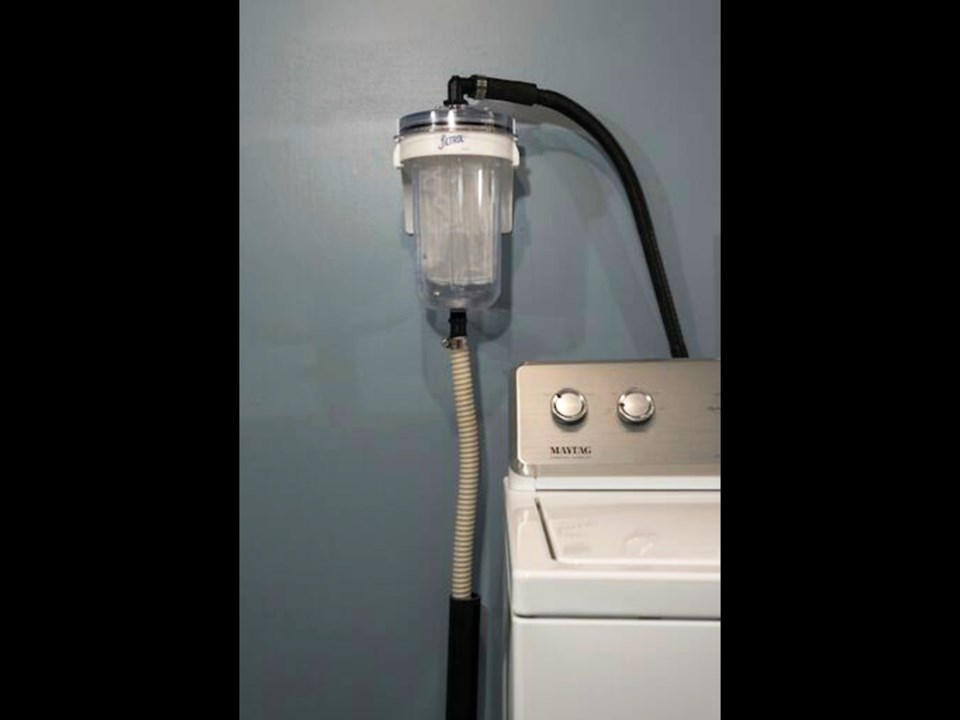Microplastic removal projects are underway this summer in Collingwood as concerns grow about plastics being found in waterways.
The team at Georgian Bay Forever, an organization dedicated to protecting Georgian Bay’s waterways from plastics, is currently carrying out two projects in the bay: Divert and Capture Collingwood and Diversion 2.0.
“(Collingwood was) aware of our Divert and Capture Parry Sound Project and expressed interest in being another study site,” Nicole Dimond, project co-ordinator of Diversion 2.0 told CollingwoodToday.ca in an email.
Divert and Capture Collingwood includes 300 microfibre capturing filters on washing machines and these filters will reduce emissions of fibres. Diversion 2.0 is Georgian Bay-wide and includes items like sea bins.
Microplastics are small fragments of plastic, less than five millimetres in size and can derive from washing machines, littering and not recycling properly.
Melissa De Young, a director at research and advocacy organization Pollution Probe, says plastics can come from everyday items.
“Larger pieces of plastics, like pens or coffee-cup lids, break down into smaller pieces when they’re out in the environment,” said De Young. “There are microfibers in some of our clothes and textiles that can be released during the laundry process, and those are released into our waterways.”
Microplastics can impact the community’s health, animals and resources.
According to Dimond, humans consume about five grams of plastic a week, and microplastic effects on health are still being researched.
De Young says some risks can include chemical ingestion, which could transfer from fish to humans after consumption.
“There are also risks associated with the chemicals in the plastics being absorbed into different organisms,” said De Young. “If you are making sure you are sorting correctly at home, it's less likely for some of those plastics to end up in landfill, which is sometimes how they escape into the environment."
According to Dimond, animals also have the potential to consume plastics.
“Animals small to large have been recorded as ingesting microplastics – plastics can build up in the stomachs of animals and is not digestible,” she said.
As for removing plastics, it is not just up to the organizations; the town has a role to play as well. Dimond recommends people can do their part by picking up garbage and using reusable products instead of plastic can also prevent more microplastic buildup in the community’s waterway.
Dimond says residents can volunteer to have a filter installed on their washing machine. They must be connected to Collingwood town water, have space for a filter and participate for over the course of two years.
If you're interested in volunteering, contact Brooke Harrison who is the co-ordinator of Divert and Capture here.



